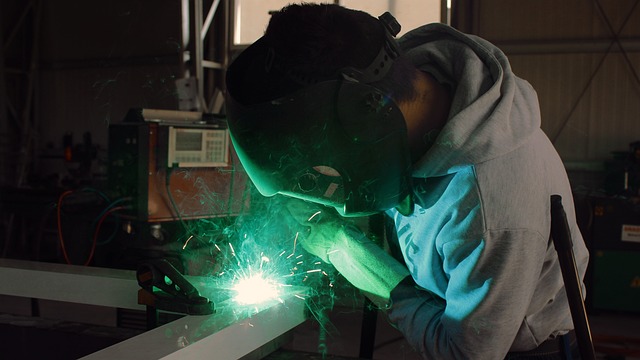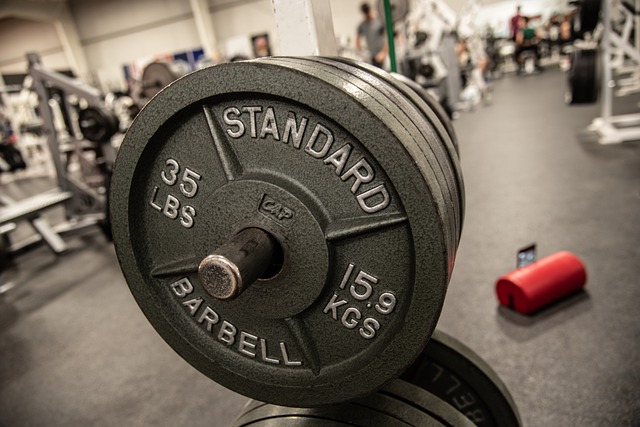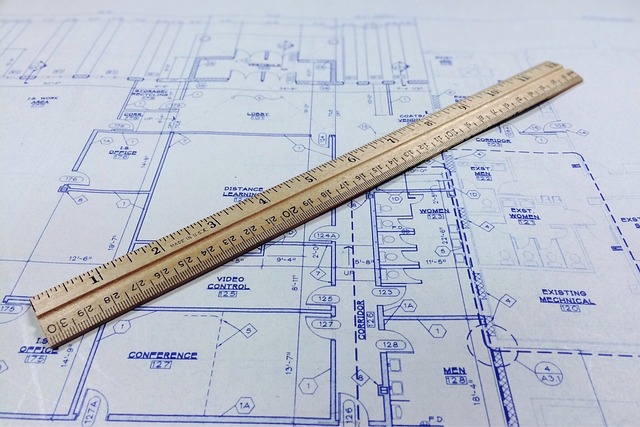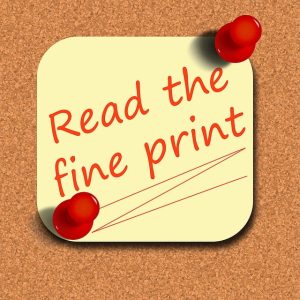Translation Services for UK Technical Guidelines: Navigating Compliance and Future Trends
Technical standards are vital for safety, quality, and compatibility across UK industries, with compliance mandatory for global trade. Accurate translations of UK technical guidelines and standards are crucial for international success, ensuring prod…….

Technical standards are vital for safety, quality, and compatibility across UK industries, with compliance mandatory for global trade. Accurate translations of UK technical guidelines and standards are crucial for international success, ensuring products meet worldwide regulations. Professional translation services specializing in these fields navigate complex regulatory environments, streamlining processes for product launches, market expansions, and collaborations. Choosing the right partner involves evaluating expertise, quality controls, security, and project management capabilities to ensure precise communication of complex technical information tailored to UK standards. AI tools can aid in translation efficiency but still require human oversight for specialized knowledge and terminological consistency. High-quality translations enhance global adoption, compliance, product quality, and accessibility, as demonstrated in pharmaceuticals and renewable energy sectors.
Are your UK technical standards ready for a global audience? In today’s interconnected world, compliance with technical guidelines is crucial for success in diverse industries. Accurate translation of these standards is essential for maintaining quality, consistency, and legal integrity across borders. This article explores the significance of technical standards compliance, the role of expert translation services, challenges in documenting complex information, best practices, legal considerations, and future trends shaped by AI. Discover how to navigate this landscape and embrace global reach with reliable translations for UK technical guidelines and standards.
- Understanding the Significance of Technical Standards Compliance
- The Role of Accurate Translation in UK Industries
- Challenges in Translating Technical Documentation
- Ensuring Quality: Best Practices for Technical Translation
- Selecting the Right Translation Service Provider
- Case Studies: Successful Translations in Action
- Legal and Regulatory Considerations for Translated Standards
- Future Trends: AI's Impact on Technical Translation Services
- Conclusion: Embracing Global Reach with Reliable Translations
Understanding the Significance of Technical Standards Compliance

Technical standards play a pivotal role in ensuring product safety, quality, and compatibility across various industries in the UK. Compliance with these standards is not just a legal requirement but also a cornerstone for fostering innovation, maintaining consumer trust, and facilitating international trade. Failure to meet these stringent guidelines can result in product recalls, market access restrictions, and reputational damage, especially when aiming to export goods or services globally.
In today’s interconnected world, the demand for translation services for UK technical guidelines and standards has never been higher. Accurate and culturally sensitive translations are essential to ensure that these critical documents reach a global audience without losing their integrity or legal validity. Professional translation services specializing in technical fields can help organizations navigate complex regulatory landscapes, facilitating smoother processes for product launches, market expansions, and international collaborations.
The Role of Accurate Translation in UK Industries

In today’s globalised market, accurate translation plays a pivotal role in ensuring the success of UK industries. As businesses expand internationally or engage with European partners, understanding and adhering to technical guidelines and standards in multiple languages is essential. Translation services for UK Technical Guidelines and Standards are no longer a luxury but a necessity, facilitating seamless communication and compliance across borders.
Accurate translations go beyond simple word-for-word substitutions. They require a deep understanding of industry-specific terminology, cultural nuances, and regulatory frameworks to convey the intended meaning faithfully. This is particularly critical in technical fields where precision and clarity are paramount. Effective translation ensures that UK products, services, and processes meet international standards, fostering trust among global stakeholders and opening doors to new markets.
Challenges in Translating Technical Documentation

Translating technical documentation presents a unique set of challenges, especially when it comes to UK standards and guidelines. The primary hurdle lies in accurately conveying complex terminology and specialized knowledge across languages while maintaining compliance with regulatory requirements. Technical terms often lack direct equivalents, making translation a delicate process that requires deep industry expertise.
UK technical standards, which are highly specific and nuanced, demand translation services that go beyond simple word-for-word rendering. Professional translators must be adept at interpreting these guidelines and transforming them into clear, concise, and linguistically appropriate content in the target language. Failure to meet this standard can result in misinterpretation, leading to potential safety hazards, legal issues, or non-compliance with industry standards.
Ensuring Quality: Best Practices for Technical Translation

Ensuring quality in technical translation is paramount, especially when it comes to UK technical standards and guidelines. To achieve this, organisations should consider employing native language translators with expertise in their specific field. This not only guarantees an accurate understanding of the material but also ensures that cultural nuances are appropriately conveyed.
Best practices include providing clear and comprehensive source materials, defining target languages and audiences, and establishing a robust review process. Regular quality assessments and feedback loops further enhance the translation’s accuracy and consistency. Translation memory tools can also be beneficial, as they help maintain terminological consistency across projects, ultimately streamlining the translation process for UK technical standards.
Selecting the Right Translation Service Provider

When it comes to translating UK technical standards, choosing the right partner is paramount. Look for a translation service provider with deep expertise in technical documentation and experience serving clients within your industry. This ensures accuracy and a nuanced understanding of specialized terminology.
Consider providers offering not just machine translation, but also human review and editing to guarantee precision and fluency in the target language. Additionally, assess their project management practices, security protocols for handling sensitive information, and ability to deliver on tight deadlines.
Case Studies: Successful Translations in Action

Successful translations of UK technical standards are not just a matter of word-for-word substitutions; they require a deep understanding of both the source and target languages, as well as the cultural nuances involved. Case studies from various industries demonstrate that effective translation services for UK Technical Guidelines and Standards can significantly enhance international adoption and compliance. For instance, a leading pharmaceutical company successfully translated their detailed manufacturing procedures, ensuring consistent product quality across global markets. Similarly, a renewable energy standards body streamlined its guidelines through professional translation, making them accessible to a diverse set of stakeholders worldwide. These examples highlight the critical role that high-quality translation plays in facilitating global standardization and fostering innovation.
Legal and Regulatory Considerations for Translated Standards

The translation of UK technical standards and guidelines is a complex process, particularly when considering legal and regulatory requirements. As these standards often carry significant weight in various industries, accurate and compliant translations are imperative. One of the primary concerns is ensuring that the translated documents remain aligned with the original intent and meaning while adhering to local laws and regulations.
Translation services for UK technical guidelines must be mindful of juridical nuances, especially when dealing with safety standards, product specifications, or industry-specific regulations. Professional translators should have a deep understanding of these legal frameworks to avoid any potential pitfalls. This includes knowledge of the target market’s legislative body, their interpretation of international standards, and any unique cultural considerations that may impact how certain terms are translated.
Future Trends: AI's Impact on Technical Translation Services

The future of technical translation in the UK is set to be shaped significantly by Artificial Intelligence (AI). As AI technology continues to advance, its impact on translation services will be profound, offering both opportunities and challenges for professionals in this field. One of the most notable trends is the increasing use of machine translation tools that can rapidly translate large volumes of technical text with a high degree of accuracy. This presents an efficient solution for organizations looking to streamline their documentation processes, especially when dealing with consistent terminology in standards and guidelines.
However, while AI can handle basic translation tasks effectively, it may struggle with the nuanced and complex nature of technical content. This is where human translators still hold an edge, as they can provide specialized knowledge, ensure terminology consistency across projects, and maintain the highest level of accuracy for critical documents. The role of AI in this context will be to augment human capabilities, offering quick drafts that professional translators can review, edit, and refine, ensuring the final translated document meets the strict requirements of UK technical standards and guidelines.
Conclusion: Embracing Global Reach with Reliable Translations

The global market is a dynamic, ever-evolving landscape where businesses strive to establish themselves internationally. For the UK, this means embracing a diverse range of cultural and linguistic landscapes, demanding that technical guidelines and standards be accessible and understandable across borders. Translation services for UK Technical Guidelines and Standards play a pivotal role in ensuring compliance, facilitating international trade, and fostering collaboration.
Reliable translation services are not just about converting words from one language to another; they require a deep understanding of technical terminology, cultural nuances, and regulatory requirements specific to each target market. By leveraging advanced technologies and expert linguists, UK organizations can ensure their technical standards are accurately translated, preserving the integrity of the original content while adapting it to local contexts. This approach not only facilitates global reach but also strengthens relationships with international partners, customers, and stakeholders, ultimately driving economic growth and innovation.
In a rapidly globalizing world, ensuring your UK technical standards are fit for international recognition is paramount. This article has explored the intricate landscape of translation within various sectors, highlighting the critical role accurate translation plays in facilitating progress and compliance. From navigating complex documentation to leveraging AI technologies, understanding legal requirements, and selecting the right partners, embracing these strategies will empower organizations to embrace a global reach with reliable translations of UK technical guidelines and standards.







